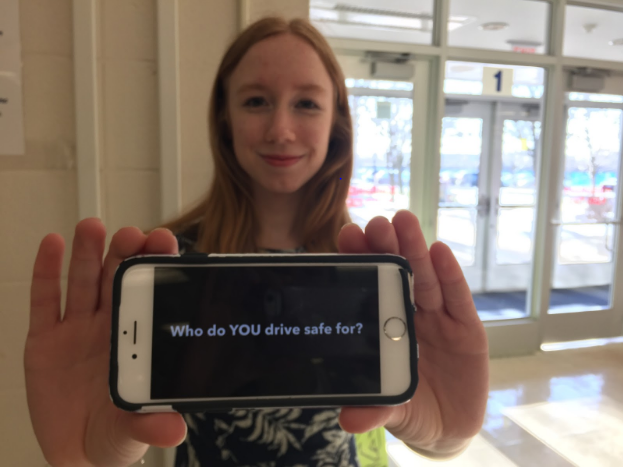Lives on the line: spreading awareness for Distracted Driving Week
In the state of Illinois, car accidents are the leading cause of deaths for high school students, according to statistics collected by the Illinois Department of Public Health in 2016. That is why the Lake Zurich Police Department (LZPD), along with Operation Click, will be participating in Distracted Driving Week from April 23-27 at the high school.
“I know distracted driving has affected other communities, whether kids get seriously hurt or sometimes even killed in car accidents,” Mark Frey, school resource officer, said. “When you’re driving, you know, 40-50 miles [per hour] on the road, things can happen pretty quickly. So if you’re not paying attention and something happens in front of you, like either an animal runs in front of your car or the car in front of you slams on the brakes and you’re looking down at something and you’re distracted, that’s an issue.”
In 2016, distracted driving was the cause of death for 3,450 lives, according to to the National Highway Traffic Safety Administration, and 391,000 were injured. Outside of these numbers, NHTSA estimates that 14,668 more lives were saved because of the use of seatbelts. Today, although 90.1% of the national population do use their seatbelts, the other 9.9% is who Operation Click targets.
According to Sonja Brueggemann, senior and Operation Click president, members of the club will sometimes go out into the school parking lot and check to see who has their seatbelt on, in order to promote the importance of wearing it. In addition, Operation Click has also recorded a video on their twitter page (@lzhsopclick) that, according to Brueggemann, further highlights the perils that distracted driving puts students in.
While seatbelt safety is one of the most crucial aspects of safe driving, according to Brueggemann, students should also remember that being on their phone is often an unnecessary danger when they are behind the wheel.
“Don’t worry about your phone because honestly, you don’t need to always be talking on your phone. Just turn it off,” Brueggemann said, “If you’re starting to drive now and you get into the habit of not using your phone, eventually you won’t need to use it [all the time] in the future, so start now and start as fast as possible.”
In addition to Brueggemann’s tips about phone usage while driving, Frey has some more advice for all students to take into consideration each time they are on the road.
“Make sure [you remember] what you learned in Driver’s Ed about driving safe and following speed limits and stopping at stop signs and making sure you’re wearing seatbelts, and don’t forget to always be aware of your surroundings,” Frey said.

As a senior, Caroline's back for her third year as Digital EIC. If you ever catch her outside of school, she'll probably be running with the cross country...

